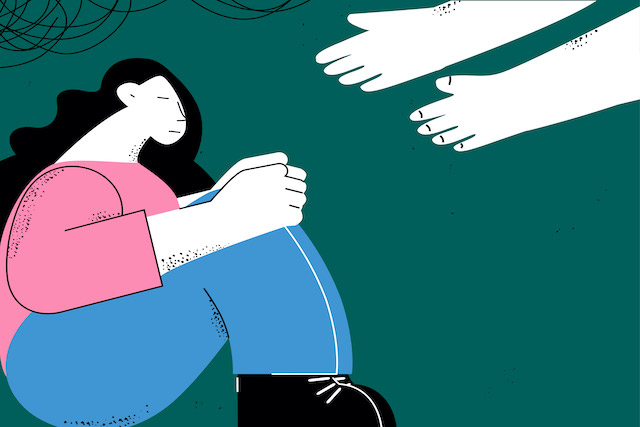The Surprising Factor Increasing Insulin Resistance In Women 50+
Beyond diet and exercise.

Advertisement
This ad is displayed using third party content and we do not control its accessibility features.

Assistant Beauty & Health Editor
Assistant Beauty & Health Editor
Hannah Frye is the Assistant Beauty Editor at mindbodygreen. She has a B.S. in journalism and a minor in women’s, gender, and queer studies from California Polytechnic State University, San Luis Obispo. Hannah has written across lifestyle sections including health, wellness, sustainability, personal development, and more.
Image by ohlamour studio / Stocksy Insulin resistance does not often cause symptoms but is a key precursor to type II diabetes. Many doctors also opt out of insulin resistance testing given the complexity and price of the test. When it comes to preventing insulin resistance, most experts will recommend eating healthily, exercising, and managing your weight—however, new research proposes another factor that’s especially important for older women. 
Chronic insufficient sleep impairs insulin sensitivity
A group of 38 women between the ages of 25 and 75 participated in the study, 11 of whom were postmenopausal. Each woman in the group reported habitual sleep time between 7 and 9 hours pre-study.
Researchers state that sleep's impact on insulin sensitivity was significant amongst the whole group, but even more so for postmenopausal women.
Unfortunately, post-menopausal women are simultaneously more at risk for sleep-onset insomnia disorder (having trouble falling asleep but not staying asleep) than pre-menopausal women, according to previous research.
These findings may encourage healthcare providers to learn more about the sleep habits of their patients, including postmenopausal women, and see chronic lack of sleep as a potential risk factor for insulin resistance.
Why this matters for diabetes prevention
Depending on your personal sleep habits, getting roughly 6 hours a night may sound pretty standard. The CDC estimates 33.2% of adults in the U.S. quality for “short sleep,”1 meaning they get less than seven hours each night.
Now, this isn’t to say that sleep is the only (nor most important) thing to pay attention to to prevent diabetes and insulin resistance–diet and exercise play significant roles here.
Prioritizing your sleep is never a bad idea
This research shows just how important this nightly recharge is, for insulin sensitivity and so much more. While more research is certainly needed to confirm these findings in other groups, prioritizing your sleep is never a bad idea.
The takeaway
A new study from the Diabetes Care Journal found that women who got an average of 6.2 hours of sleep each night had impaired insulin sensitivity independent of body fat percentage, with even more significant changes for postmenopausal women. Simply put: Sleep is incredibly important for preventing insulin resistance and for supporting overall health. Not sure why you can’t seem to clock a full night’s rest? Troubleshoot your sleep issues with these common causes.

 Hollif
Hollif 






























